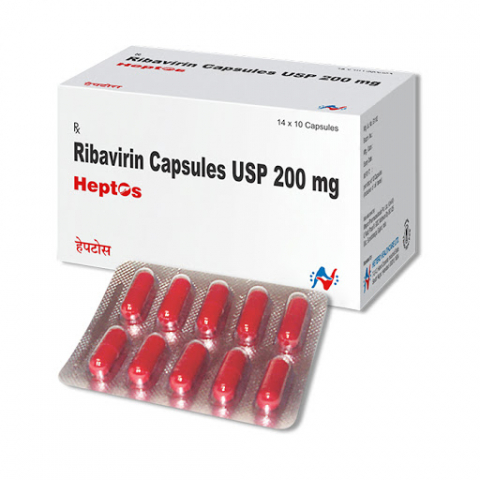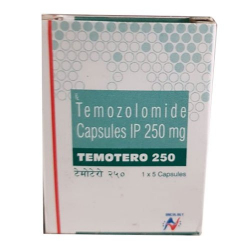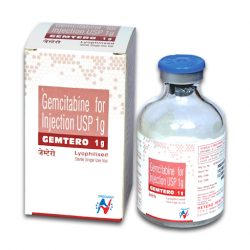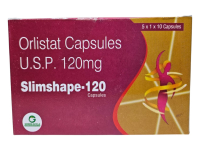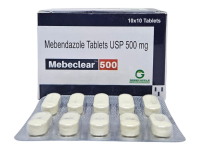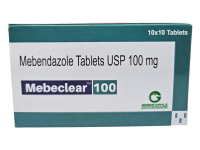Heptos 200mg (Ribavirin)
Heptos tablet is thought out as an anti-viral drug used mainly to treat hepatitis C viral infection. Heptos including an active component like Ribavirin which is characterized as nucleoside anti-metabolite anti-viral medication.
DESCRIPTION
Heptos tablet is thought out as an anti-viral drug used mainly to treat hepatitis C viral infection. Heptos including an active component like Ribavirin which is characterized as nucleoside anti-metabolite anti-viral medication.
Heptos expels anti-viral activity by blocking the nucleic acid synthesis which is used against both RNA & DNA of suspected viruses. Heptos is considered as synthetic nucleoside analogue of ribofuranose with anti-hepatitis viral activity
INDICATION
Heptos tablet is primarily indicated in chronic hepatitis C viral infection by combining with other anti-viral drugs like sofosbuvir or interferon alfa 2b. Heptos is majorly indicated for the patients with the age of 3 years or older with compensated cirrhosis. The most important effect of this therapy is to sustain the virological response rate after the 24 weeks completion of therapy; therefore, it will be obtaining hypothetical HCV RNA after 24 or 48 weeks of therapy.
Patients with the accompanying qualities are more averse to profit by retreatment after coming up short a course of treatment: past non-response, past pegylated interferon treatment, critical crossing over fibrosis or cirrhosis, and genotype 1 contamination. No security and adequacy information are accessible for treatment of longer than multi year.
MECHANISM OF ACTION
The mechanism of Heptos tablets are; The main mechanisms involved in Heptos are prohibition of viral RNA & protein synthesis. Heptos undergoes phosphorylation intracellularly with the help of adenosine kinase which get converted into metabolites like Heptos mono, di-, triphosphate. Heptos triphosphate is a major active metabolite which expels anti-viral activity by prohibiting directly messenger RNA polymerase by competing with nucleotide binding site of the enzyme. Thus, results as to prevent the correct binding of nucleotides, causes diminishing in viral proliferation or production of defective virions. Heptos undergoes major activities like; RNA synthesis inhibition Triggers viral genome alterations Viral multiplication inhibition
ADME PROPERTIES
ABSORPTION
The absorption of Heptos occurs very quickly and intensively. The Cmax value of Heptos is reaches within 2 hours after drug intake The oral bioavailability of Heptos is 64% In single dose, the maximum plasma concentration of Heptos is reaches in 1.7 hours; whereas in multiple dose (twice daily) within 3 hours.
DISTRIBUTION
Heptos is highly distributed in plasma and it has high volume of distribution like 2825L. Heptos does not bind to human plasma protein.
METABOLISM
Heptos undergoes metabolism by two processes; 1. Reversibly phosphorylation pathway in nucleated cells, 2. Degradative pathway associating deribosylation& amide hydrolysis to get Triazole carboxylic acid metabolite.
ELIMINATION
This metabolite are eliminated renally with the range of 61%; 12% in feces. Nearly 17% of uptake drug is an unchanged form The terminal half life period of Heptos about 120 to 170 hours The clearance value of Heptos 26L/hr
DOSAGE AND ADMINISTRATION
FOR CAPSULES
IN ADULTS
The dosage of Heptos should be recommended on the basis of body weight of the infected patients. In patients at least 75kg: The recommended dose is 2 Heptos capsules 200mg should be taken as morning dose; 3 tablets of Heptos 200mg should be administered as second dose orally In patients below 75kg: The recommended dose of Heptos is 3 capsules should be taken as a morning dose and 3 capsules of Heptos should be taken as a second dose in a same day as orally.
IN PEDIATRICS
The daily recommended dose of Heptos is 15mg/kg orally in divided doses. The suggested duration of therapy is 48 weeks for pediatric patients with genotype I. After 24 weeks of therapy, virological response rate of patients should be evaluated. Discontinuation of therapy should be taken into consideration in the patients who are not achieved HCV RNA below the limit of assay. The duration of therapy in both genotype II & III is 24 weeks.
IN HEPTOS CAPSULES WITH INTRON A COMBINATION TREATMENT;
The usual dose of peginterferon is 1.5mcg/kg/weeks given as subcutaneous by combining with 800 to 1400mg of Heptos administered as orally. On basis of body weight; Heptos dosage taken into consideration <40kg: 800mg/day 40 to 50kg: 800mg/day 51 to 60kg: 800mg/day 61 to 65kg: 800mg/day 66 to 75kg: 800mg/day 76 to 80kg: 1000mg/day 81 to 85kg: 1200mg/day 86 to 105kg: 1200mg/day >105kg: 1400mg/day During the therapy, following conditions may take; Appropriate hematological test may take Liver function test & TSH Pregnancy-monthly investigate the child bearing potential ECG
DISCONTINUING THE TREATMENT WITH HEPTOS
In adults patient, who are not accomplish the lower HCV RNA in assay, after 12 weeks or 24 weeks of treatment must discontinue the Heptos capsules using therapy.
IN HEPTOS TABLETS
For genotype I & IV: <75kg: 1000mg /day for 48 weeks ≥75kg: 1200mg/day for 48 weeks For genotype II & III: The recommended dose is 800mg should be taken orally per day for 24 weeks In pediatrics; 23 to 33kg: 400mg/day 34 to 46kg: 600mg/day 47 to 59kg: 800mg/day 60 to 74kg: 1000mg/day ≥75kg: 1200mg/day
IN RENAL IMPAIRED PATIENTS
CrCl 30 to 50ml/min: The recommended doses are taken alternatively by 200mg & 400mg every other day Less than CrCl 30ml/min: 200mg daily For hemodialysis patients: 200mg daily Heptos capsules are administered with food. Heptos capsules are not recommended in the patients with the creatinine clearance value of less than 50ml/min. Heptos capsules should not be opened, crushed or chewed.
SIDE EFFECTS
HEPTOS TABLET CAUSED SIDE EFFECTS
Headache, Fatigue, Rigors, Fever, Flu like syndrome, Asthenia, Chest pain, Dizziness, Nausea, Anorexia, Dyspepsia, Vomiting, Myalgia, Arthralgia, Musculoskeletal pain, Insomnia, Irritability, Depression, Emotional liability, Concentration impairment, Nervousness, Dyspnea, Sinusitis, Alopecia, Rash, Pruritus, Hematological values alteration, Diminishing hemoglobulin values, Hearing disorders, Vertigo, Diabetes, Pulmonary hypertension, Aplastic anemia
PRECAUTION
SAFETY MEASURES OF HEPTOS
Some risk factor has to be considered; Heptos should not be used as monotherapy; it must be combined with some other anti-viral medication. The major toxic factor of Heptos is hemolytic anemia; this may result in aggravation of cardiac disease like myocardial infarction. Heptos tablets or capsules may causes Teratogenecity and embryocidal defects while using this tablet in pregnancy period.
Safety precautions provided for reducing this severity; Heptos capsules or tablets may produce birth defects; to avoid this risk condition prevents this intake in pregnancy condition.
ANEMIA
To avoid the life threatening conditions, frequently monitor the blood counts of the suspected patients before & after starting the therapy.
PANCREATITIS
In this condition, discontinue the Heptos therapy
OPHTHALMOLOGIC DISORDERS
This may occurs due to combination of Heptos with alpha interferon, this may prevent by Avoid this concomitant Frequent eye checkup takes place Discontinue the treatment to avoid the aggravation of disorders
LAB TEST
Patient who are receiving Heptos should be periodically monitor by counting the blood cells, TSH levels, hepatic function test, & eye checkup.
DENTAL & PERIODONTAL DISORDERS
These adverse effects may occur due to the concomitant use of Heptos with interferon, this may damage the teeth & mucous membranes. Avoid this combination or discontinue the treatment.
GROWTH IMPACT IN PEDIATRIC PATIENTS
This combinational therapy will retard the growth of the pediatric patients, use with cautiously on weight basis manner
DRUG INTERACTION
Heptos capsules co administered with Didanosine causes toxicities due to elevation of exposure of Didanosine& its metabolite. Avoid this concomitant to reducing the adverse effects related to Didanosine. In this combination some fatal liver injury may occur. In HIV/HCV co infected patients who are receiving combinational anti-retroviral therapy for HIV infection, interferon alfa & Heptos may have chance of getting hepatic decompensated cirrhosis effect.
The combination of nucleoside analogues with Heptos may leads to severe condition like decompensated cirrhosis. To avoid this risk factor care should be taken while concomitating the nucleoside analogues with Heptos or discontinue the anti-retroviral therapy or anti-viral therapy. This is because of the reason like; the cell culture anti-viral activity of stavudine & zidovudine against HIV are antagonized by Heptos, this may causes loss of anti-retroviral activity.
The metabolism of Heptos is not mediated by cytochrome P450 enzymes, there is no pharmacokinetic properties alteration occurs while combining Heptos with drugs metabolized by CYP450 isoenzymes. Co administration of Heptos with azathioprine causes various risk factors like, severe Pancytopenia and elevates the exposure of azathioprine associated adverse effects.
During this combination, aggregation of azathioprine metabolites may occur and causes myelotoxicities. To avoid this type of exposure, patient must be investigating by counting the blood cells, including platelets count frequently.
CONTRAINDICATION
CONTRAINDICATIONS OF HEPTOS
Heptos is contraindicated to pregnancy condition, may cause fetal deficiencies. Some hypersensitivity reactions like Stevens Johnson syndrome, toxic epidermal necrolysis or Erythema multiforme may occur due to patients may contraindicated to the component of Heptos capsules or tablets. Contraindicated to the patients who are suffered with autoimmune hepatitis.
Heptos is contraindication with the patients who are having hemoglobinopathies like Thalassemia & sickle cell anemia Contraindicated to the patients having creatinine clearance value less than 50ml/min Concurrent use of Heptos with Didanosine is contraindicated.
PREGNANCY & LACTATION
Pregnancy category X Heptos should not be recommended for pregnancy period Teratogenecity, embryocidal defects are some deficiencies occurs in fetal cases Breast feeding should not be allowed. The potency of Heptos has not been evaluated in pediatric patients with the age of below 3 years and also in HIV/HCV co infected patients.
STORAGE AND HANDLING
The storage of Heptos tablets of capsules are kept at 25°C (77°F); excursion allowed between 15°C – 30°C Protect from moisture, light & heat.
OVER DOSAGE
In some cases only over dosage of Heptos should be takes place, in such cases serious risk factors like cardiac disorders, blood related problems may occur. There is no special antidote applicable for the over dosage of Heptos, to avoid this adverse condition patient should not skip or do not take the missed dose without getting advice from the medical adviser. Hemodialysis is not effective in over dosage condition of Heptos .
MISSED DOSE
Heptos capsules are produce serious illness, if patient fail to take the dose of Heptos must be consult with medical practitioner and follow the instructions. On the other way, the missed dose should be skipped and continue the regular dosing schedule.
| Фирменное наименование | Heptos |
| Действующее вещество | Рибавирин 200 мг |
| Производитель | Hetero |
| Упаковка | 100 Таблеток |
Пока нет комментариев













